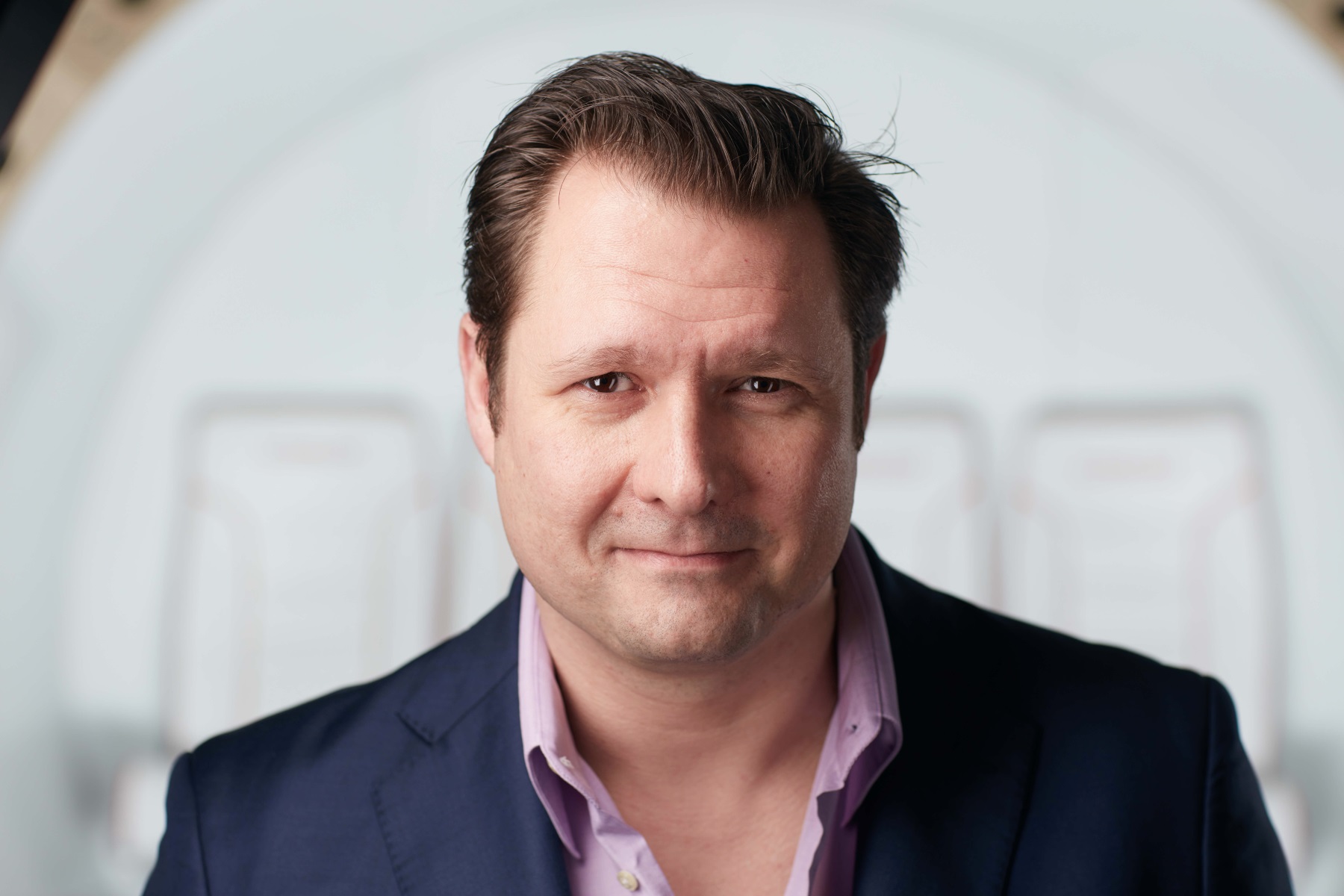Hyperloop CEO Dirk Ahlborn isn't just working to disrupt transportation, but also the way a business operates.

CEO of Hyperloop Transportation Technologies, Mr Dirk Ahlborn, shares about the future of transportation with IMpact. (Image credit: Hyperloop Transportation Technologies)
By Francis Kan
A transportation system where pods, called hyperloops, travel at speeds of more than 1,200kph through a large tube using magnets sounds like something lifted out of the pages of a science-fiction novel. Using this system, a trip between Singapore and Ipoh, Malaysia – a distance of 560km – could theoretically take less than half an hour.
The concept for this futuristic system was first laid out by tech visionary Elon Musk, but it is US-based Hyperloop Transportation Technologies (HTT) that could be the first to make it a reality.
At Innovfest Unbound 2017 held in Singapore, HTT CEO Dirk Ahlborn told the audience that the company would be announcing the first commercial route in the next three to six months. What's more, commuters could be riding a hyperloop as early as 2020, with the United Arab Emirates (UAE) possibly the first market to have it.
HTT is also breaking new ground with an innovative crowdsourcing business model, where a community of collaborators is contributing not just funds but also to research, design, and construction of hyperloops. IMpact had a quick chat with Dirk for his take on the future of transportation.
How close are we to a commercially operating hyperloop?
Version one is ready to be built. The biggest hurdle is the regulatory approval; that's the reason why we are working with governments around the world. We expect to have the first system up and running 36 months after we start construction later this year.
What routes are you looking at developing first?
We have several feasibility studies at the moment and will start others over the next couple of month – Abu Dhabi-Alain in the UAE, Bratislava-Brno-Prague in Slovakia and the Czech Republic, and a couple of lines in Indonesia.
What have been the key challenges you’ve faced so far?
We work in a completely new way. This was a challenge but it works better than anything I have experienced so far and we learned a lot over the last three years. Innovation goes very fast but governments move slowly, so the regulations are the biggest hurdles to overcome.
The problem we are solving is that public transportation relies heavily on government subsidies. There is a need to solve this issue everywhere in the world.
How will hyperloops change the way we work and live?
It allows us to build more and better public transportation. Thanks to its speed, we can live in one place and work in another, and move freight in hours rather than weeks.
Hyperloop is being worked on through a crowdsourcing platform. Do you see this as the future for tech startups?
Yes, we see this as the model of the future. We have more than 800 team members around the world with more than 40 companies as part of our team. Everything is online, but company creation is still offline. This model allows us to work with passionate people and build a better company.
What are some challenges of this distributed collaboration?
It takes specific people; those that are self-motivated. You have to keep them engaged. Communication is a big challenge, as everybody believes he or she needs to know everything.
Has anything surprised you so far in this journey?
With our model, we believe people care more about passion than money and we were proven right. The biggest surprise was the scale in which it works.


.webp)